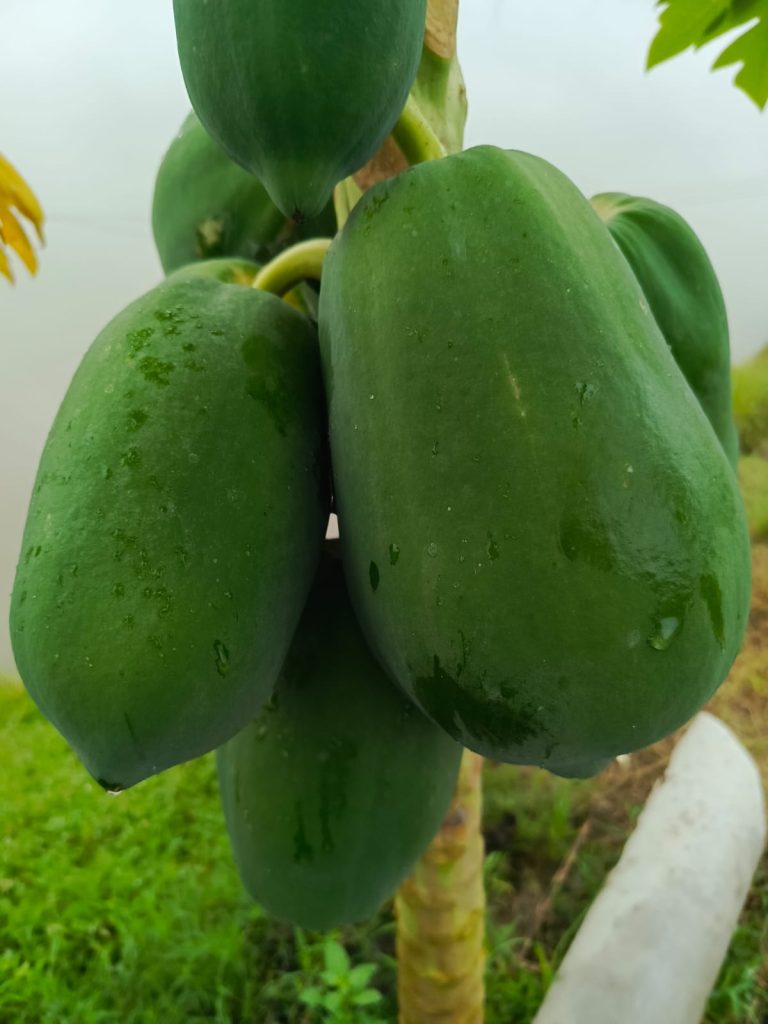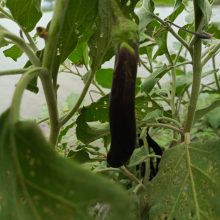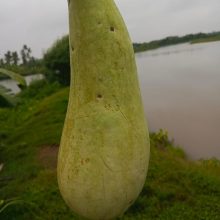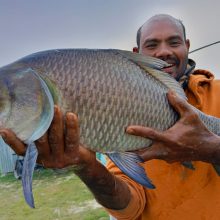Growing Quality Papayas – Insights from Our Papaya Farm
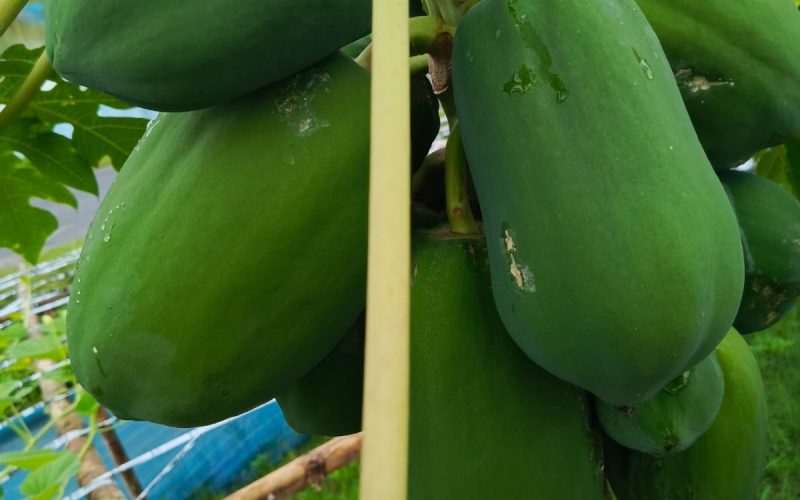
Welcome to our papaya farm! Today, we’re excited to showcase our fresh green papayas, which are not only delicious but also packed with health benefits. In this article, we’ll explore the different aspects of papaya farming, including its species, genetics, varieties, production methods, and marketing strategies.
About the Papaya Plant
Papaya, scientifically known as Carica papaya, belongs to the family Caricaceae. Native to Central America and southern Mexico, papaya is now widely cultivated in tropical and subtropical regions around the world due to its high nutritional value and economic importance.
Species and Varieties
There are several varieties of papaya that vary in flavor, size, and appearance. Some of the common varieties include:
- Red Lady: Known for its sweet, juicy red flesh.
- Taiwan 786: A popular hybrid with high yields and resistance to certain diseases.
- Washington: A large variety with a unique taste and long shelf life.
- Solo: A smaller variety often used for fresh consumption.
Our farm focuses on cultivating high-yield and disease-resistant varieties to ensure quality produce and good returns on investment.
Genetics and Breeding
Papayas are typically propagated through seeds, and selective breeding has resulted in hybrids with desirable traits such as high yield, better taste, and disease resistance. Genetic research has improved papaya strains to make them more resilient against common papaya viruses, like the Papaya Ringspot Virus (PRSV), which can severely impact production.
Production Process
- Soil Preparation: Papayas require well-drained, fertile soil with a pH range of 5.5-7.0. Before planting, we prepare the soil by adding organic matter and fertilizers to enhance fertility.
- Seedling and Planting: We select high-quality seeds and germinate them in nursery beds before transplanting them to the main field. Papayas are spaced at 2-3 meters apart to allow enough room for growth and air circulation.
- Irrigation: Regular watering is essential, especially during dry periods. However, overwatering can lead to root rot, so we monitor soil moisture carefully to ensure optimal water supply.
- Fertilization and Pest Control: We use organic and balanced fertilizers to promote growth and fruit development. Natural pest control methods are applied to protect our papayas from common pests, ensuring a safe and healthy product.
- Harvesting: Papayas are usually harvested when they are partially yellow but still firm, which helps them ripen perfectly by the time they reach consumers. Proper handling during harvesting helps maintain fruit quality and reduces damage.
Marketing and Distribution
Once harvested, our papayas go through a quality check to sort them by size, ripeness, and appearance. We then package them for distribution through several channels:
- Local Markets: Fresh papayas are sold directly to local markets, allowing customers to enjoy the freshest fruits.
- Wholesale Distribution: We partner with wholesalers who supply papayas to supermarkets, ensuring a wider reach and steady demand.
- Online Sales: With the rise in e-commerce, we also explore online sales, offering customers the convenience of fresh papayas delivered to their doorstep.
Benefits of Our Papayas
Papayas from our farm are rich in essential nutrients, including vitamin C, vitamin A, and antioxidants, making them a fantastic addition to any diet. They aid digestion, boost immunity, and promote healthy skin. Whether eaten fresh, used in salads, or as a base for smoothies, our papayas are versatile and packed with flavor.
Conclusion
At our farm, we take pride in growing high-quality papayas with sustainable and eco-friendly practices. From careful soil preparation to strategic marketing, each step in our process ensures that our customers receive the best quality fruit possible. We invite you to experience the taste and benefits of our farm-fresh papayas.
Thank you for supporting sustainable farming! Stay tuned for more updates from our papaya garden, and feel free to reach out if you’re interested in purchasing our produce.
